This article was co-authored by George Sachs, PsyD. George Sachs is a Licensed Psychologist and the Owner of Sachs Center based in New York, New York. With over ten years of experience, Dr. Sachs specializes in treating ADD/ADHD and Autism Spectrum Disorders in children, teens, and adults. He holds a BS in Psychology from Emory University. Dr. Sachs earned his Doctorate of Psychology (PsyD) from the Illinois School of Professional Psychology, Chicago. He completed his clinical training in Chicago at Cook County Hospital, Mt. Sinai Hospital, and the Child Study Center. Dr. Sachs completed his internship and postdoctoral work at the Children’s Institute in Los Angeles, where he supervised and trained therapists in Trauma-Focused Cognitive Behavioral Therapy (TFCBT). He has been trained as a Gestalt Therapist and certified by the Gestalt Associates Training Program of Los Angeles. Dr. Sachs is the author of The Adult ADD Solution, Helping the Traumatized Child, and Helping Your Husband with Adult ADD. He has appeared on the Huffington Post, NBC Nightly News, CBS, and WPIX discussing his holistic approach to ADD/ADHD treatment.
There are 22 references cited in this article, which can be found at the bottom of the page.
This article has been viewed 38,611 times.
Attention Deficit Hyperactivity Disorder (ADHD) is a common condition. By 2011, about 11% of school-aged children in the U.S. had been diagnosed with ADHD, which equates to 6.4 million kids. Of these, about two-thirds were boys.[1] Important people throughout history are believed to have had ADHD, such as Thomas Edison, Albert Einstein, Wolfgang Amadeus Mozart, Ludwig van Beethoven, Walt Disney, Dwight D. Eisenhower, and Benjamin Franklin.[2] While every person with ADHD is different, it can be helpful to understand the general traits (both challenges and strengths) related to ADHD.
Steps
Understanding the Basics
-
1Know the general signs of ADHD. Many kids are naturally hyperactive and erratic, which can make ADHD hard to notice. Adults can also deal with ADHD as well, and manifest the same symptoms. If you feel that you or a loved one often seems distracted or impulsive, it's possible that ADHD is involved. There are signs to look for in case you think your child or loved one may have ADHD. Try setting up an appointment with a doctor or specialist if you see signs like:[3]
-
2Recognize that the signs should be noticeable and well-established in order for someone to qualify for the diagnosis. The DSM-5 defines three types of ADHD: inattentive type, hyperactive type, and combined type. Several signs must have existed by the age of 12, and they must show up in more than one setting for at least 6 months. A diagnosis must be made by a trained professional.
- Symptoms should be obvious in the person compared to their same-age peers, and they should be strong enough to impact normal functioning at school, at work, and/or in social settings.
- For hyperactive type, the symptoms should be seen as disruptive.
- The symptoms should not be explained by a different condition (e.g. autism or oppositional defiant disorder).
- The DSM-5 criteria require that children 16 and under must have at least six symptoms in a category to gain the diagnosis, while those 17 and older need five symptoms.[7]
Advertisement -
3Recognize the inattentive symptoms of ADHD. Inattentive type ADHD makes it difficult for a person to focus, no matter how hard they might try. People with this type of ADHD will usually exhibit at least 5 or 6 of the following:[8]
- Makes careless mistakes and is inattentive to detail in work, school, or with other activities.
- Has trouble paying attention during tasks or while playing.[9]
- Doesn't seem to be paying attention when someone is talking directly to him or her.
- Doesn't follow through with homework, chores, or jobs and is easily sidetracked.
- Is organizationally challenged.[10]
- Avoids tasks requiring sustained focus, such as schoolwork.
- Can't keep track of or often loses keys, glasses, papers, tools, or other possessions.
- Is easily distracted.
- Is forgetful.
-
4Notice the hyperactive-impulsive symptoms of ADHD. People with this type of ADHD typically struggle with self-control. To qualify for ADHD, the symptoms must be considered disruptive. The behaviors to look out for include:[11] [12]
- Being fidgety or squirmy, such as constantly tapping the hands or feet.
- The child running or climbing inappropriately.
- The adult constantly feeling restless.
- Struggling to play quietly or do quiet activities.
- Being constantly on the go without breaks.
- Excessive talking.
- Blurting out even before questions are asked.
- Struggling to wait for their turn.
- Interrupting others or inserting himself into others' discussions or games.
- Being very impatient.
- Saying inappropriate comments, showing emotions without restraint, or acting without regards to consequences.
-
5Look for combined symptoms of ADHD. For combined type ADHD, the individual will present with at least six signs of both inattentive and hyperactive-impulsive ADHD. This is the most common type of ADHD that is diagnosed in children.[13]
-
6Keep in mind that causes of ADHD are not fully clear yet. Genetics play a role in ADHD, and researchers have noticed certain genetic quirks in people with ADHD. In addition, studies show correlations between children with ADHD to prenatal alcohol and smoking as well as to early childhood exposure to lead.[14]
- People with ADHD are diverse. This can make it harder to figure out specific causes.[15]
Understanding the Challenges of ADHD
-
1Learn about the basal ganglia. Scientific analyses show the brains of persons with ADHD are slightly different in that two structures tend to be smaller. The first, the basal ganglia, regulates the movement of muscles and signals which should be working and which should be at rest during given activities.
-
2Learn the role of the prefrontal cortex. The second brain structure that is smaller than normal in a person with ADHD is the prefrontal cortex. This is the brain's hub for conducting higher-order executive tasks, such as memory, learning, and attention regulation, and where theses tasks come together to help us function intellectually.
- The prefrontal cortex influences the levels of dopamine and serotonin. Dopamine is needed for focus, and people with ADHD tend to have low dopamine. Serotonin impacts mood, sleep, and appetite.[19] [20] [21]
- A smaller-than-normal prefrontal cortex with lower-than-optimal dopamine and serotonin can make it harder to focus and "tune out" distractions. Persons with ADHD struggle to focus on a single thing at a time, and they may get distracted and struggle with impulse control.[22] [23]
-
3Recognize the self-esteem issues that can accompany ADHD. People with ADHD can get a lot of negative feedback. They notice that they can't do things as easily as their peers can, they may get corrected and punished often, and they can struggle to achieve their goals.[24] That's frustrating, and they may start feeling like something is wrong with them.[25] [26]
- A positive environment, where people offer praise and are willing to negotiate and help with meeting expectations, can help a lot.
-
4Notice any co-occurring conditions. People with ADHD are at higher risk for mood disorders, behavior disorders, and other conditions.[27] [28] [29] People with ADHD may also have:
- Anxiety
- Depression
- Sensory Processing Disorder
- Bipolar disorder
- Conduct disorder
- Oppositional defiant disorder
- Dyslexia, dyscalculia, and other learning disabilities
- Autism
-
5Recognize that diagnosis can lead to better support. Without help, people with ADHD may struggle, and start to believe that they are "stupid" or "bad." A diagnosis can help them understand that they aren't broken, and help the people around them understand how to help them.
-
6Recognize that the right support can help a person with ADHD have a brighter future. Some people outgrow ADHD, while others do not. Either way, people with ADHD deserve guidance and support. The right help can help them accomplish more, and feel better about themselves. They can also learn strategies to manage their ADHD on their own as they get older.[32] Here are a few examples of strategies:
- Using reminders, alarms, and alerts
- Breaking big tasks into smaller pieces, and tackling one piece at a time
- Prioritizing tasks
- Labeling feelings and figuring how to deal with overwhelming emotions
- Using fidget toys/tools, and fidgeting as needed
- Checking with teachers or bosses to make sure they didn't miss any important information about a task
- Keeping a routine
- Role-playing to practice difficult social situations
Understanding Strengths Related to ADHD
-
1Recognize that people with ADHD can be very creative. They think differently, and that can lead to ingenuity.[33] Their imagination can lead to beautiful things. They can also have very strong problem-solving skills, and be able to think of solutions that no one else considered.
- People with ADHD may have flashes of brilliance.[34]
-
2Keep in mind that hyperfocus and hyperfixations can be beneficial. People with ADHD can have laser-like focus on tasks that interest them.[35] This can allow them to hone their skills and learn many things. They can become incredibly skilled at their favorite things, and possibly accomplish a lot.
-
3Know that people with ADHD may be very adventurous. People with ADHD may be more likely to take risks and be spontaneous, and sometimes reap rewards as a result.[36] This can lead to successes in business, athletics, and other areas.
- People with ADHD can be very good in a crisis, being able to stay calm in extreme situations.[37]
-
4Keep in mind that people with ADHD can be fun, charming, and kind. Some people with ADHD have a "sparkling personality," and can be a delight to get to know.[38] They can be very funny and entertaining. They know what it is like to struggle, so they also may be very humble, generous, and empathetic towards others who are going through a rough time.
- A person with ADHD can make a very good romantic partner.[39]
-
5Keep in mind that every person with ADHD is different. Not every person with ADHD will have every positive trait in the list, and they'll also likely have ones that aren't listed. Everyone is unique.
Expert Q&A
-
QuestionHow can I get my child support in the classroom?
 George Sachs, PsyDGeorge Sachs is a Licensed Psychologist and the Owner of Sachs Center based in New York, New York. With over ten years of experience, Dr. Sachs specializes in treating ADD/ADHD and Autism Spectrum Disorders in children, teens, and adults. He holds a BS in Psychology from Emory University. Dr. Sachs earned his Doctorate of Psychology (PsyD) from the Illinois School of Professional Psychology, Chicago. He completed his clinical training in Chicago at Cook County Hospital, Mt. Sinai Hospital, and the Child Study Center. Dr. Sachs completed his internship and postdoctoral work at the Children’s Institute in Los Angeles, where he supervised and trained therapists in Trauma-Focused Cognitive Behavioral Therapy (TFCBT). He has been trained as a Gestalt Therapist and certified by the Gestalt Associates Training Program of Los Angeles. Dr. Sachs is the author of The Adult ADD Solution, Helping the Traumatized Child, and Helping Your Husband with Adult ADD. He has appeared on the Huffington Post, NBC Nightly News, CBS, and WPIX discussing his holistic approach to ADD/ADHD treatment.
George Sachs, PsyDGeorge Sachs is a Licensed Psychologist and the Owner of Sachs Center based in New York, New York. With over ten years of experience, Dr. Sachs specializes in treating ADD/ADHD and Autism Spectrum Disorders in children, teens, and adults. He holds a BS in Psychology from Emory University. Dr. Sachs earned his Doctorate of Psychology (PsyD) from the Illinois School of Professional Psychology, Chicago. He completed his clinical training in Chicago at Cook County Hospital, Mt. Sinai Hospital, and the Child Study Center. Dr. Sachs completed his internship and postdoctoral work at the Children’s Institute in Los Angeles, where he supervised and trained therapists in Trauma-Focused Cognitive Behavioral Therapy (TFCBT). He has been trained as a Gestalt Therapist and certified by the Gestalt Associates Training Program of Los Angeles. Dr. Sachs is the author of The Adult ADD Solution, Helping the Traumatized Child, and Helping Your Husband with Adult ADD. He has appeared on the Huffington Post, NBC Nightly News, CBS, and WPIX discussing his holistic approach to ADD/ADHD treatment.
Licensed Psychologist Talk to the school administrators and teachers about setting up an IEP, which is shorthand for individualized education plan. This is a support plan that will help teachers understand what kind of help your child needs. It may also give them extra supports, like additional time for tests or extensions on homework.
Talk to the school administrators and teachers about setting up an IEP, which is shorthand for individualized education plan. This is a support plan that will help teachers understand what kind of help your child needs. It may also give them extra supports, like additional time for tests or extensions on homework. -
QuestionWill a therapist help with ADHD?
 George Sachs, PsyDGeorge Sachs is a Licensed Psychologist and the Owner of Sachs Center based in New York, New York. With over ten years of experience, Dr. Sachs specializes in treating ADD/ADHD and Autism Spectrum Disorders in children, teens, and adults. He holds a BS in Psychology from Emory University. Dr. Sachs earned his Doctorate of Psychology (PsyD) from the Illinois School of Professional Psychology, Chicago. He completed his clinical training in Chicago at Cook County Hospital, Mt. Sinai Hospital, and the Child Study Center. Dr. Sachs completed his internship and postdoctoral work at the Children’s Institute in Los Angeles, where he supervised and trained therapists in Trauma-Focused Cognitive Behavioral Therapy (TFCBT). He has been trained as a Gestalt Therapist and certified by the Gestalt Associates Training Program of Los Angeles. Dr. Sachs is the author of The Adult ADD Solution, Helping the Traumatized Child, and Helping Your Husband with Adult ADD. He has appeared on the Huffington Post, NBC Nightly News, CBS, and WPIX discussing his holistic approach to ADD/ADHD treatment.
George Sachs, PsyDGeorge Sachs is a Licensed Psychologist and the Owner of Sachs Center based in New York, New York. With over ten years of experience, Dr. Sachs specializes in treating ADD/ADHD and Autism Spectrum Disorders in children, teens, and adults. He holds a BS in Psychology from Emory University. Dr. Sachs earned his Doctorate of Psychology (PsyD) from the Illinois School of Professional Psychology, Chicago. He completed his clinical training in Chicago at Cook County Hospital, Mt. Sinai Hospital, and the Child Study Center. Dr. Sachs completed his internship and postdoctoral work at the Children’s Institute in Los Angeles, where he supervised and trained therapists in Trauma-Focused Cognitive Behavioral Therapy (TFCBT). He has been trained as a Gestalt Therapist and certified by the Gestalt Associates Training Program of Los Angeles. Dr. Sachs is the author of The Adult ADD Solution, Helping the Traumatized Child, and Helping Your Husband with Adult ADD. He has appeared on the Huffington Post, NBC Nightly News, CBS, and WPIX discussing his holistic approach to ADD/ADHD treatment.
Licensed Psychologist Yes, but I'd highly recommend that you choose a therapist who specializes in ADHD. A regular therapist is going to be a lot less helpful for your child.
Yes, but I'd highly recommend that you choose a therapist who specializes in ADHD. A regular therapist is going to be a lot less helpful for your child.
References
- ↑ http://www.cdc.gov/ncbddd/adhd/data.html
- ↑ The ADHD Update: Understanding Attention-Deficit/Hyperactivity Disorder by Alvin and Virginia Silverstein and Laura Silverstein Nunn (2008).
- ↑ http://www.cdc.gov/ncbddd/adhd/facts.html
- ↑ George Sachs, PsyD. Licensed Psychologist. Expert Interview. 9 October 2020.
- ↑ George Sachs, PsyD. Licensed Psychologist. Expert Interview. 9 October 2020.
- ↑ George Sachs, PsyD. Licensed Psychologist. Expert Interview. 9 October 2020.
- ↑ http://www.cdc.gov/ncbddd/adhd/diagnosis.html
- ↑ http://www.cdc.gov/ncbddd/adhd/diagnosis.html
- ↑ George Sachs, PsyD. Licensed Psychologist. Expert Interview. 9 October 2020.
- ↑ George Sachs, PsyD. Licensed Psychologist. Expert Interview. 9 October 2020.
- ↑ http://www.cdc.gov/ncbddd/adhd/diagnosis.html
- ↑ http://www.nimh.nih.gov/health/topics/attention-deficit-hyperactivity-disorder-adhd/index.shtml
- ↑ http://www.nimh.nih.gov/health/topics/attention-deficit-hyperactivity-disorder-adhd/index.shtml
- ↑ http://www.nimh.nih.gov/health/publications/attention-deficit-hyperactivity-disorder/index.shtml?rf=71264#pub3
- ↑ http://www.nimh.nih.gov/health/topics/attention-deficit-hyperactivity-disorder-adhd/index.shtml
- ↑ Serotonin and Prefrontal Cortex Function: Neurons, Networks, and Circuits by M.V. Puig and A.T. Gulledge in Molecular Neurobiology, Vol 44, issue 3 (December 2011)
- ↑ Why Is My Child's ADHD Not Better Yet? Recognizing The Undiagnosed Secondary Conditions That May Be Affecting Your Child's Treatment by David Gottlieb, Thomas Shoaf, and Risa Graff (2006).
- ↑ https://www.additudemag.com/focus-factors/
- ↑ Serotonin and Prefrontal Cortex Function: Neurons, Networks, and Circuits by M.V. Puig and A.T. Gulledge in Molecular Neurobiology, Vol 44, issue 3 (December 2011)
- ↑ Why Is My Child's ADHD Not Better Yet? Recognizing The Undiagnosed Secondary Conditions That May Be Affecting Your Child's Treatment by David Gottlieb, Thomas Shoaf, and Risa Graff (2006).
- ↑ Fight Back With Food by Tana Amen, R.N. in ADDitude Magazine (Winter 2014).
- ↑ Why Is My Child's ADHD Not Better Yet? Recognizing The Undiagnosed Secondary Conditions That May Be Affecting Your Child's Treatment by David Gottlieb, Thomas Shoaf, and Risa Graff (2006).
- ↑ The ADHD Update: Understanding Attention-Deficit/Hyperactivity Disorder by Alvin and Virginia Silverstein and Laura Silverstein Nunn (2008)
- ↑ George Sachs, PsyD. Licensed Psychologist. Expert Interview. 9 October 2020.
- ↑ https://www.additudemag.com/i-believe-in-you-how-to-vanquish-a-childs-low-self-esteem/
- ↑ https://www.psychologytoday.com/us/blog/how-expect-what-you-werent-expecting/201710/childhood-adhd-and-poor-self-esteem
- ↑ The ADHD Update: Understanding Attention-Deficit/Hyperactivity Disorder by Alvin and Virginia Silverstein and Laura Silverstein Nunn (2008).
- ↑ Why Is My Child's ADHD Not Better Yet? Recognizing The Undiagnosed Secondary Conditions That May Be Affecting Your Child's Treatment by David Gottlieb, Thomas Shoaf, and Risa Graff (2006).
- ↑ http://www.webmd.com/add-adhd/guide/adhd-symptoms?page=2#3
- ↑ http://www.ncbi.nlm.nih.gov/pubmed/21176203
- ↑ On Their Own: Creating an Independent Future for Your Child With Learning Disabilities and ADHD by Anne Ford (2007).
- ↑ George Sachs, PsyD. Licensed Psychologist. Expert Interview. 9 October 2020.
- ↑ https://www.additudemag.com/slideshows/benefits-of-adhd-to-love/
- ↑ https://psychcentral.com/lib/adhd-and-adults-how-to-use-your-strengths-to-succeed/
- ↑ https://www.additudemag.com/slideshows/benefits-of-adhd-to-love/
- ↑ https://www.additudemag.com/slideshows/benefits-of-adhd-to-love/
- ↑ https://adhdatwork.add.org/potential-benefits-of-having-an-adhd-employee/
- ↑ https://www.additudemag.com/slideshows/benefits-of-adhd-to-love/
- ↑ https://www.additudemag.com/slideshows/benefits-of-adhd-to-love/
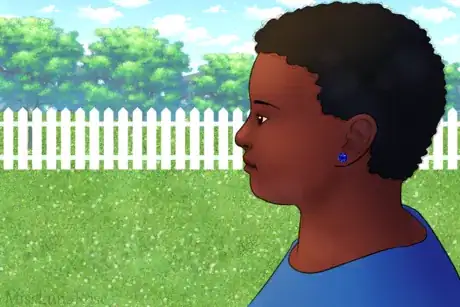


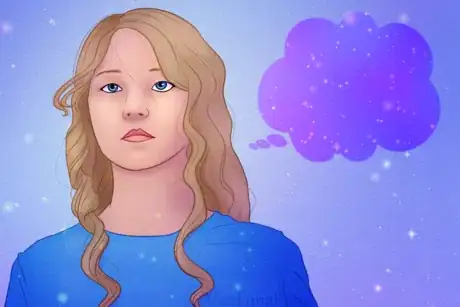
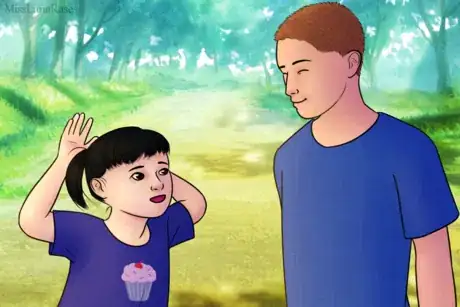
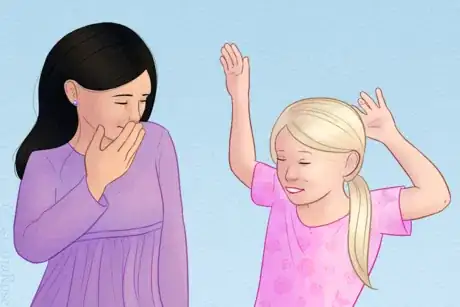
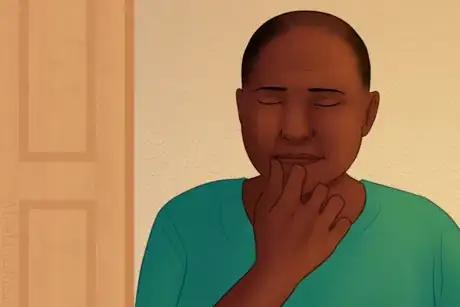
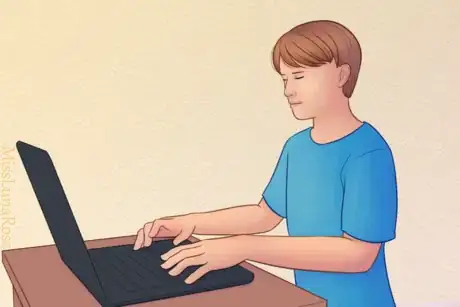
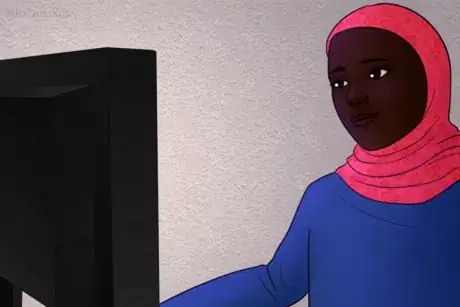

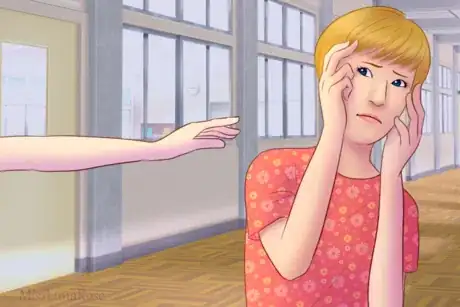
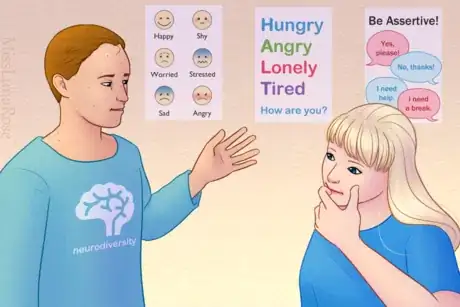

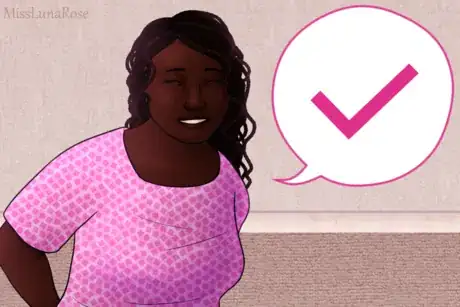

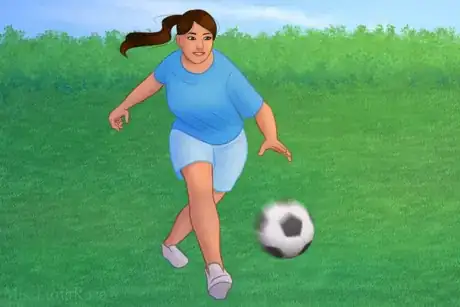
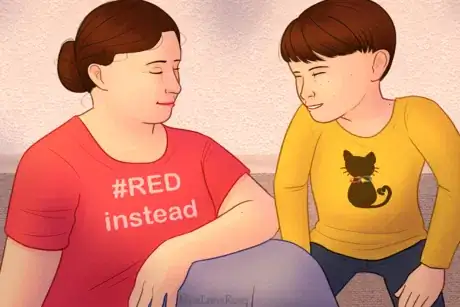
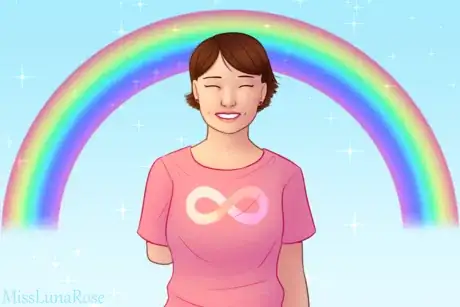
-Step-37.webp)
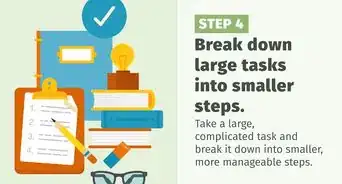
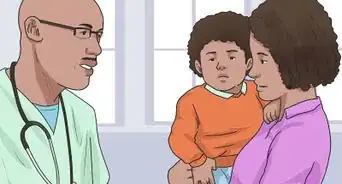
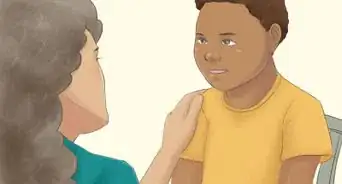
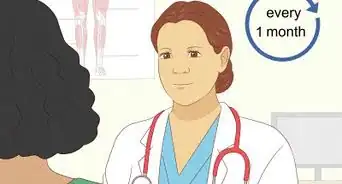
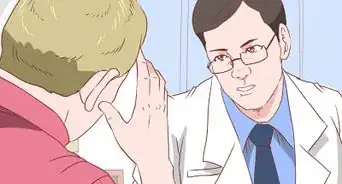
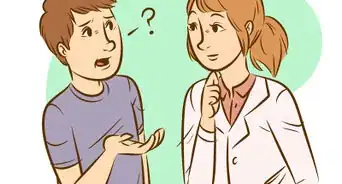


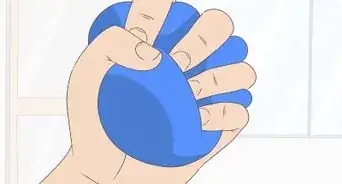

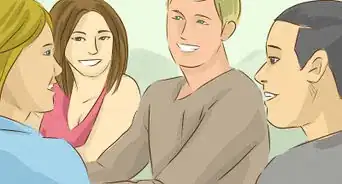
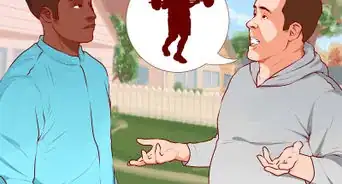







-Step-37.webp)
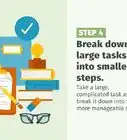
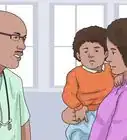
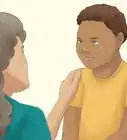



































Medical Disclaimer
The content of this article is not intended to be a substitute for professional medical advice, examination, diagnosis, or treatment. You should always contact your doctor or other qualified healthcare professional before starting, changing, or stopping any kind of health treatment.
Read More...